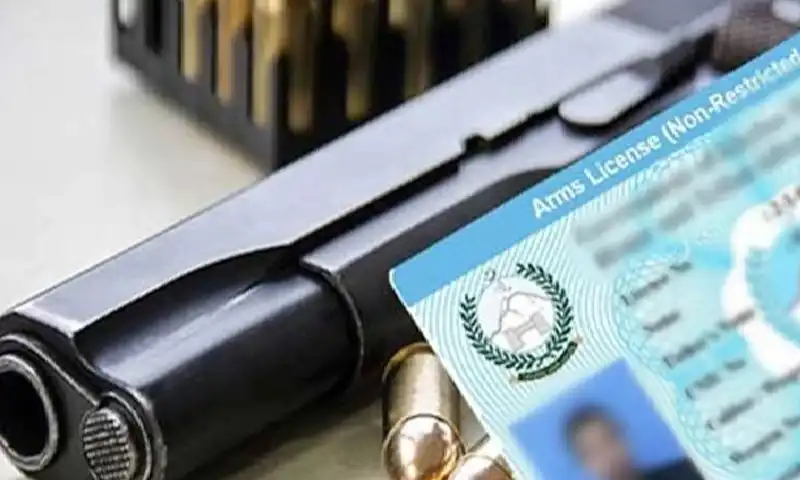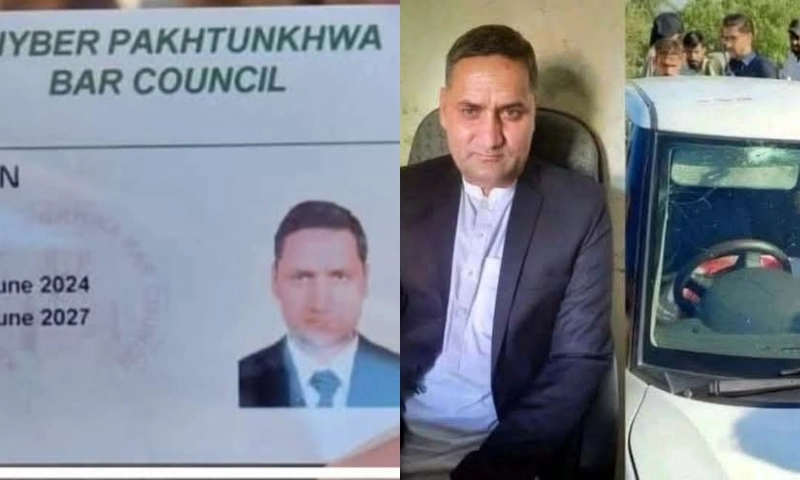- Web Desk
- 3 Hours ago

Seniority, transfer case: constitutional bench issues notices to judges, attorney general
-

- Web Desk Ahsan Wahid
- Yesterday

ISLAMABAD: The Constitutional Bench of the Supreme Court of Pakistan heard the case pertaining to the transfer of judges in the Islamabad High Court (IHC). A five-member constitutional bench headed by Justice Muhammad Ali Mazhar presided over the case. In addition to Justice Mazhar, the bench includes Justice Naeem Akhtar Afghan, Justice Shahid Bilal, Justice Salahuddin Panhor and Justice Shakeel Ahmed.
“We have seven different petitions before us,” Justice Mazhar said, adding that all five judges in the seniority case also brought a petition before the Constitutional Bench. “Why don’t we hear the petition of the judges first? There are two important points in this case; one is that the judges were transferred, and the second is that what will be the seniority of the judges [after the transfers]?” he said, adding, “It is clear that the seniority rules of civil service employees will not apply here.”
SC says military courts case about fundamental rights, not just crimes
The bench said that it remains to be seen whether the seniority of the old High Court will continue.
Addressing the counsel Munir A Malik, Justice Mazhar asked, “Is your objection to the transfer or to the change in seniority?” To this the counsel responded that their objection is on both issues.
“According to the constitution, the consent of the judge who is transferred is necessary,” Justice Mazhar said, adding that the consent of the Chief Justices of both the High Courts concerned is also necessary along with the consent of the Chief Justice of Pakistan (CJP).
“The transfer of a judge can only be temporary, our objection is this,” Munir A. Malik answered. To this Justice Mazhar remarked, “If it were so, it would have been written in the constitution. There is no mention of temporary or permanent. The constitution only says that the President of Pakistan can transfer a judge.”
Lawyer Malik replied that the President does not have unlimited power to transfer judges.
Justice Mazhar reiterated that the constitution says that the President has the power to transfer judges, adding, “If there were additional privileges in the transfer of judges, then it would have been grounds for an objection. If the President transfers judges off his own accord, then objections could be raised. But if the transfers were made on the recommendation of the CJP, then they are in accordance with the constitution.”
Justice Mazhar asked, “Have you made the Constitutional Bench of the Supreme Court a civil court? Is the record of transfer in the petitions wrong?” Counsel Hamid Khan responded, “My arguments should also be made part of the court order. Summary notice was taken on the letter of six judges.”
SC hints at completing civilians’ trials in military courts case in two hearings
He added, “Five of these six judges are the ones who have approached you.”
Justice Mazhar said that the court cannot understand Hamid Khan’s arguments, adding, “Do you want us to hear the matter of the letter of six judges with this case? What is the connection of this case with the letter of six judges?”
Hamid Khan replied, “I reserve my right to this argument for an appropriate time.”
Attorney General Mansoor Usman Awan raised objection to the admissibility of the petition, saying that it is not admissible under Article 184(3).
The Constitutional Bench said that the decision on whether the petition is admissible or not is yet to be made.
Afterwards, the court issued an order noting that in total seven petitions were filed in the constitutional bench, and the petitioners include judges of the IHC. Advocate Malik has argued that the powers of judges should be regulated under Article 200, the order said.
The order noted that the constitutional bench was told that there should be logical reasons in the transfer notification of judges. The argument was also put before the court that if a judge accepts the transfer to another High Court, he should also take the oath of the new High Court. The argument was also put before the court that the power of transfer under Article 200 should not be unlimited, and that the transfer of a judge to another High Court should be for a limited time.
The order included Advocate Faisal Siddiqui’s statements that if a judge is transferred from one High Court to another High Court, the seniority list in that High Court remains intact, and that after the transfer of a judge, there should be an interim seniority list in the said High Court.
The court’s order also included conversations of the bench with other legal experts. Malik Idrees Ashraf recommended that the court calls for the entire record of the court transfers.
SC resumes hearing of appeal case on military trials of civilians
The bench also issued notices on the petition of five judges. These notices were issued to Acting Chief Justice Sarfaraz Dogar, along with Justice Khadim Hussain, Justice Muhammad Asif, and the registrars of the High Courts concerned. The Supreme Court also issued notice to the Attorney General of Pakistan Mansoor Usman Awan.
The court adjourned hearing of the case until April 17.




